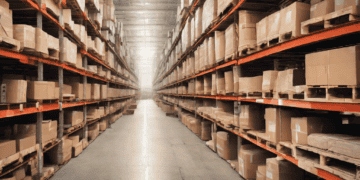In recent times, there has been a noticeable surge in the demand for more rigorous ESG (Environmental, Social, and Governance) initiatives within the logistics industry, primarily driven by customers emphasizing sustainability. This shift has prompted a significant focus within the logistics sector on curbing emissions and implementing comprehensive tracking mechanisms.
Despite the widespread adoption of sustainability reports and goal-setting by a vast number of major companies globally, the challenge persists in translating these ambitious intentions into actionable strategies. While companies have been expanding efforts in areas like diversity, inclusion, and societal contributions, transforming these goals into concrete operational strategies remains pivotal.
Decarbonization stands as a critical element in mitigating the environmental impact across the entire supply chain. Many businesses are now setting and committing to diverse decarbonization targets, aiming to transition toward a more sustainable supply chain. However, achieving effective reductions in CO2 emissions requires a comprehensive understanding of a company’s emissions profile as the fundamental starting point for any successful decarbonization plan.
Assessing a company’s baseline emissions and establishing a robust data foundation to consolidate insights into emissions are crucial tasks. This comprehensive approach enables strategic decision-making regarding environmental impact reductions, particularly within the complex realm of Scope 3 emissions.
Understanding Scope 1, Scope 2, and particularly Scope 3 emissions, which encompass a company’s entire value chain, requires a concerted effort. Collaborating with experienced partners proves beneficial in comprehensively assessing and understanding one’s carbon footprint, especially in areas beyond a company’s direct control.
Examining the emissions from cargo container transportation, it’s evident that global freight transport contributes significantly to GHG emissions, representing a substantial portion within the transportation sector. Current policies addressing transport decarbonization, however, fall short, emphasizing the necessity for more ambitious and comprehensive strategies to redirect both passenger and freight transport toward sustainability.
Regulatory bodies such as the European Union and The International Maritime Organization have intervened, imposing limitations and standards on GHG emissions. Companies can strategically reduce Scope 3 emissions, potentially saving on penalties or emission taxes while actively contributing to the evolution of a more sustainable logistics industry.
So, how can businesses strategically reduce their Scope 3 emissions? How can they tangibly embark on the journey towards a greener supply chain?
An effective step forward involves leveraging data as a strategic cornerstone for sustainable supply chain management. This shift involves a transition from articulating decarbonization intentions to devising tangible strategies that track progress and drive actual reductions in Scope 3 emissions.
For instance, a mid-size company initiating or refining its sustainability journey often compiles inputs from various sources to establish a sustainability strategy, typically communicated through a Sustainability Report. However, transitioning these aspirations into action necessitates a comprehensive understanding of the environmental impact of their logistics operations.
Here’s a structured approach businesses can take:
- Attain visibility and awareness on Scope 3 emissions.
- Identify emission hotspots within the supply chain.
- Simulate optimization of routing and modes of transport.
- Calculate resulting emissions savings.
- Define achievable decarbonization strategies and targets.
- Track progress annually and communicate achievements.
The initial steps of gaining visibility and identifying emission hotspots pose significant challenges. Businesses require sophisticated tools for end-to-end supply chain visibility to rapidly gather insights on Scope 3 emissions and optimize accordingly.
To pinpoint specific contributors to greenhouse gases within the supply chain, comprehensive data analysis is crucial. Businesses can leverage tools that offer Scope 3 visibility, aiding in emission calculations, progress tracking, and strategic decision-making for sustainable supply chain management.
Moreover, reducing emissions not only positively impacts a company’s communication and positioning but also enhances the value of its products and services, potentially leading to new revenue streams. Demonstrating tangible actions backed by data-driven initiatives can build credibility and attract customers aligned with sustainable practices.
Looking toward the future, technology emerges as a critical ally in achieving a sustainable supply chain. Enhanced Scope 3 emissions tracking tools, integrated with considerations of cost and speed, will be pivotal for optimal supply chain management. This integration will drive visibility, predictability, and optimization, catering to customers increasingly prioritizing sustainability in their purchasing decisions.
In anticipation of this evolving landscape, logistics providers are expected to offer integrated tracking services and tools, fostering a surge in demand for Scope 3 emissions visibility and optimization tools globally. This trend emphasizes the growing importance of substantiating sustainability claims with real data, steering businesses towards a more environmentally responsible future.
Get the latest supply chain logistics news updates at The Supply Chain Report. Visit ADAMftd.com for free tools related to international trade.
#ESGLogistics #SustainableSupplyChain #DecarbonizationGoals #Scope3Emissions #GreenLogistics #SupplyChainSustainability #LogisticsInnovation #EmissionTracking #EcoFriendlyTransport #SustainabilityStrategies #DecarbonizeLogistics #LogisticsTech #SustainableFuture #SupplyChainOptimization #CarbonFootprintReduction #EmissionReductionTools #GreenFreight #SustainabilityReporting















